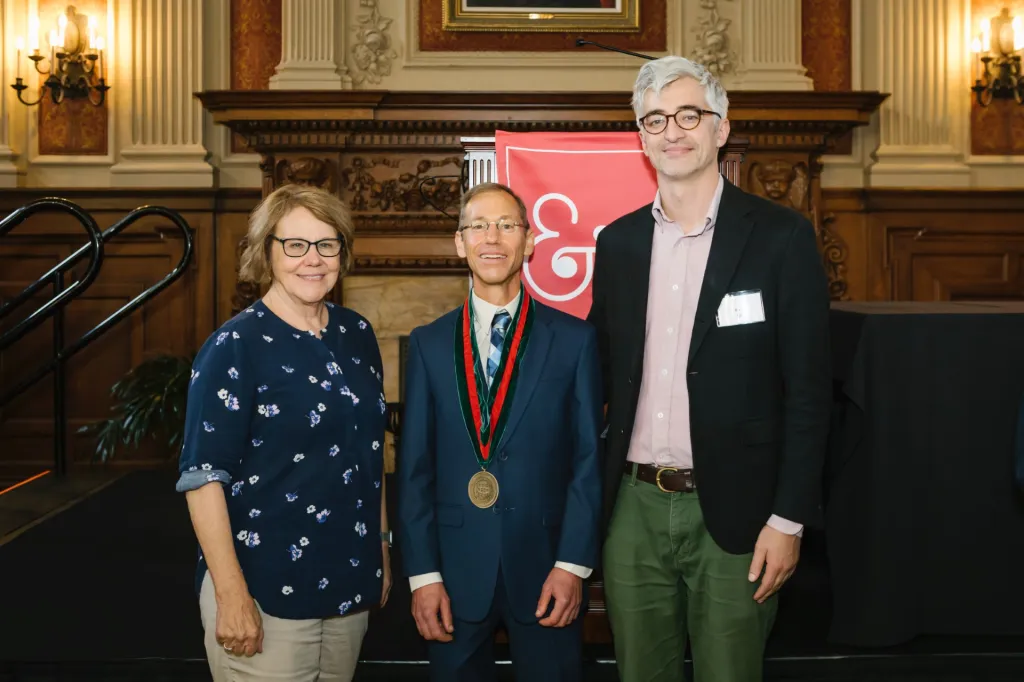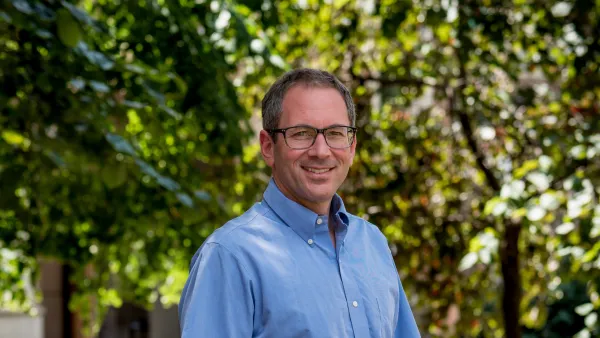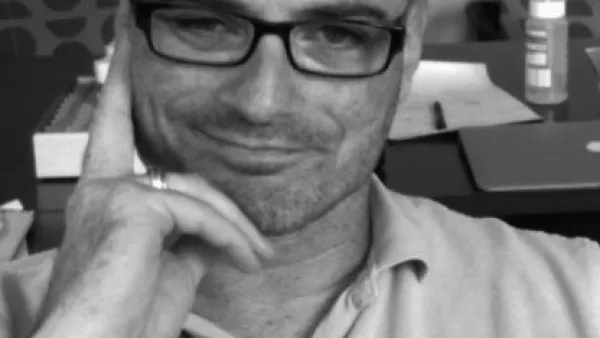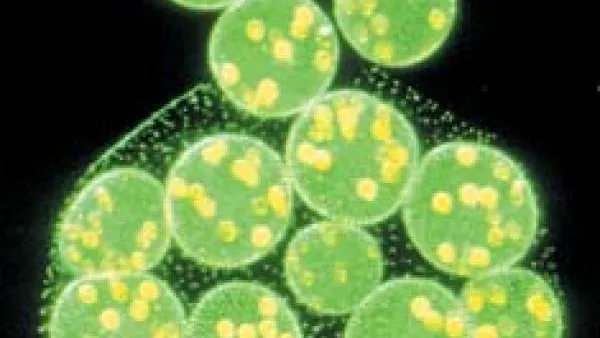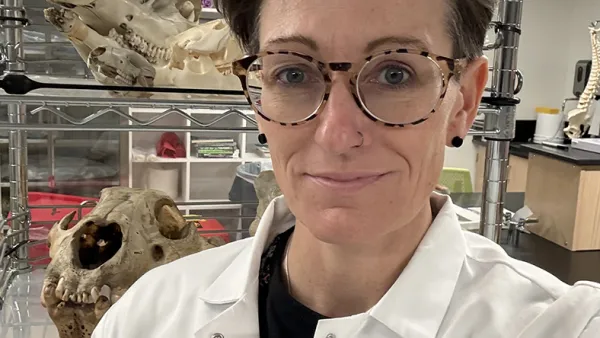A conversation with Boris Igić ('99) about WashU, the joy of community, and some very important tomatoes.
It is difficult to pinpoint the start of Boris Igić’s (’99) story, to track how he ended up where he is today—a Professor of Biological Sciences at the University of Illinois Chicago. It starts, maybe, with Igić escaping the war in Bosnia on a tourist visa to the United States in 1992. Or it starts at Washington University in St. Louis when he realized chemical engineering wasn’t for him. Or it starts before any of that.
But let’s begin in the spring of ’97, in Jonathan Losos’ evolution class. To set the scene, Igić was a sophomore, unsure of his major and his path. He was feeling, as he told me in a conversation this November, rudderless.
And then, like a lighthouse: evolution.
“It changed my life entirely,” Igić said. “I’m not just saying that. It really did.” And I could tell he wasn’t just saying that. Igić was smiling, animated (even over Zoom), as he told me about how grateful he is to Losos. (Losos is grateful to Igić too—in an email exchange he informed me that Igić is a great basketball player, and “almost singlehandedly” led the ecology and evolution intramural team to victory.)
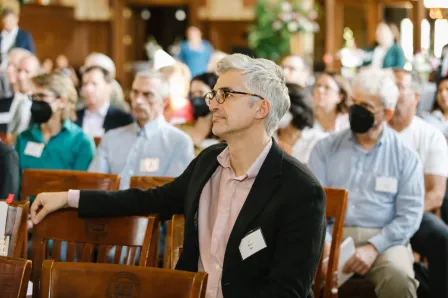
“It was a great class. I learned a lot. And mainly, I learned that you could do this for a living. I didn’t know that you could do nature show science,” Igić said, referring to the big-picture appeal of the subject. “I just never thought about it.”
Losos told me that evolutionary biology can be difficult to teach, given that students are used to just learning the facts and using hypotheses. “Studying evolution is in many ways more akin to studying history than chemistry,” he said. “There’s no experiment to test how a giraffe evolved its long neck.”
Here is where Igić found his love of biology as well as his interest in teaching. Losos said he knew from the beginning that Igić was going to be a scientist. “He always dug deeper,” Losos said, “looking for connections and finding weaknesses.” Suddenly, Igić saw a path in front of him that he was excited about.
During this same fateful sophomore spring, something else began: Igić joined Barbara Schaal’s very big and very lively lab.
“Barbara had this delightful, international group of people. There were dozens of people in the lab at that time,” Igić said. “It was just such a wonderful place to be. I spent so much more time in that lab than just work…getting in various kinds of trouble, making friends with grad students in her lab…I think that was probably the highlight of my career.” In a separate conversation, Schaal told me that it was great having undergraduates like Igić in the lab. (She also recalled an anatomically accurate snowman outside of Rebstock Hall, but I’m sure other hijinks ensued over the years.)
I asked Igić about a paper he published with Schaal about wild tomatoes in 2005, years after his graduation from WashU, long after he’d left Schaal’s lab. Once again, he began the story in Losos’ evolution class:
“For that class, we had to write a paper. I didn’t know anything about evolution. It turned out that this graduate student, Allen Smith, was working on something amazing in plants.” Igić went on to explain Smith’s work with tomatoes, which involved researching the process by which plants can tell whether the pollen that lands on them is their own or not, thus preventing self-fertilization. “This is called self-incompatibility. And that’s what Allen was working on.”
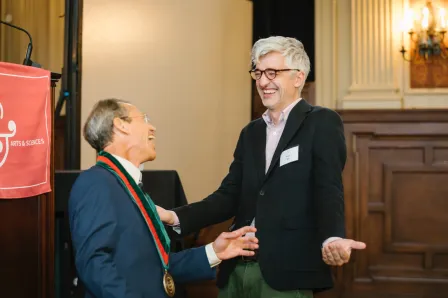
So Igić spent his time learning from Smith and incorporating the tomato research into his paper. He also received some writing help from (now professor) Ken Olsen, who was working toward his PhD at the time. “He didn’t have any business helping me. But he took pity on me. He helped me so generously,” Igić said, recalling the nights he would print out sections of the paper for Olsen to go over. “I probably learned more in those few hours than ever before.” (Olsen told me that it was easy. “He had some great ideas,” he said. “It was just a matter of getting them organized and presented in such a way that those ideas came through in the writing.”)
Igić turned in the paper for Losos’ evolution class, and then, years later, after starting his PhD program at UC San Diego, he published a paper about those same tomatoes and their self-incompatibility in PNAS in 2001. “That was my first paper,” he said. “So you can see why I’m really attached to that place and all of the students.” The seeds from those tomatoes followed Igić from St. Louis to San Diego. One plant even made it to Chicago. Igić revealed that it’s over in the university’s greenhouse.
“That paper with Barbara,” he said, referring to the 2005 paper I initially asked about, “was really the meat of Allen’s own interest. And then my interest.”
That’s the way fascination spreads from person to person—knowledge, like excitement, is contagious. One assignment from one class began a series of events that led Igić to UIC, where he continues, he said, “this sort of multifamily, multigenerational lineage” as he teaches evolution to the undergraduates. Igić, like the tomatoes, has come a long way. The lineage continues on.
“I feel the weight of this responsibility to maintain teaching excellence and standard,” Igić said. “I would come up short if I didn’t inspire others to feel the same way that I did.”
I should note that inspiration abounded for Igić at WashU beyond Losos and Schaal and Olsen. Over the course of our conversation, he also mentioned Alan Templeton, Barbara Kunkel, and Allan Larson. Igić learned more from them than just the facts of biology; he learned how to pass on his love of the subject:
“I’m just a conduit into a world of evolutionary theory and the study of plants and animals and microorganisms. They themselves are the star of the show. If I fail to help my students understand how wonderful this is, that’s on me.”
At the end of our conversation, I asked Igić for some clarification on a few dates. He reached off-screen to grab some old biology notebooks from his time at WashU to double check the year. The pages were filled, the handwriting neat. Their place in his office is a testament to his still-strong connection to WashU (in fact, he was in St. Louis for Ken Olsen’s installation as the George William and Irene Koechig Freiberg Professor of Biology this past September).
“I was both immensely lucky and privileged to have a place to land like that,” Igić said. “It is very difficult to appropriately assess the value of that, other than to say it was just magical, and just incredibly important to me. The only thing I can try to do is, in small ways, replicate that with my undergraduate and graduate students here.”
